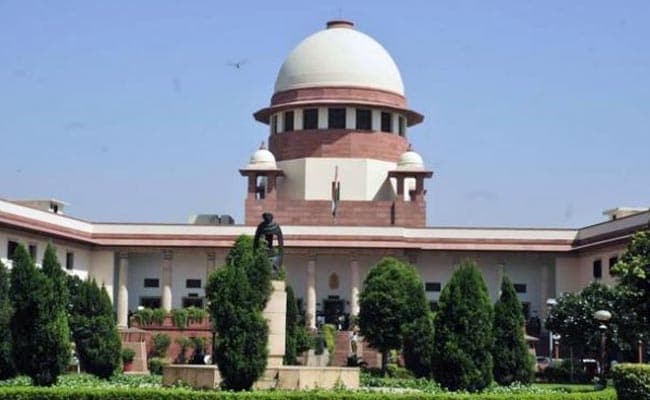
The bill states that all Supreme Court proceedings should be uploaded on a specially created website.
New Delhi:
Congress lawmaker Rajeev Satav has moved a private member's bill proposing recording of all Supreme Court proceedings and making them available online to the public.
The Right to Access of Judicial Proceedings And Information Bill 2016 prescribes digital recording of the court proceedings and making them available online.
At present, the proceedings of the top court are available in public domain in text format after each hearing.
However, as the proceedings are lengthy and the arguments involved complex, the rationale behind the judgement becomes difficult for the common man to understand, Mr Satav said.
He also said some of the expressions of the opposing view on the bench are lost in plain text format.
"Adding two more sensory sources for information--audio and video--will increase the effectiveness as well as the speed of dissemination of legal information, both to the legal fraternity as well as common public at large," he added.
This can be preserved only through visual archives, he said, adding, "visual medium will also help in setting illustrations of exemplary legal conduct. It will also enhance the faith and respect of common man for the judiciary".
As per the bill, the central government after consulting with the chief justice should establish a 'Supreme Court Secretariat'.
The secretariat would work under overall supervision of the chief justice and the government would appoint officers and employees to ensure effective implementation of the provisions of this bill, it added.
The bill states that all proceedings should be uploaded on a specially created website for this purpose.
It also proposes to create a database of the audio-visual archives within twenty-four hours of any hearing, including the name of the judge, parties involved, date of hearing, chamber number, case number and case type.
The Right to Access of Judicial Proceedings And Information Bill 2016 prescribes digital recording of the court proceedings and making them available online.
At present, the proceedings of the top court are available in public domain in text format after each hearing.
However, as the proceedings are lengthy and the arguments involved complex, the rationale behind the judgement becomes difficult for the common man to understand, Mr Satav said.
He also said some of the expressions of the opposing view on the bench are lost in plain text format.
"Adding two more sensory sources for information--audio and video--will increase the effectiveness as well as the speed of dissemination of legal information, both to the legal fraternity as well as common public at large," he added.
This can be preserved only through visual archives, he said, adding, "visual medium will also help in setting illustrations of exemplary legal conduct. It will also enhance the faith and respect of common man for the judiciary".
As per the bill, the central government after consulting with the chief justice should establish a 'Supreme Court Secretariat'.
The secretariat would work under overall supervision of the chief justice and the government would appoint officers and employees to ensure effective implementation of the provisions of this bill, it added.
The bill states that all proceedings should be uploaded on a specially created website for this purpose.
It also proposes to create a database of the audio-visual archives within twenty-four hours of any hearing, including the name of the judge, parties involved, date of hearing, chamber number, case number and case type.
Track Latest News Live on NDTV.com and get news updates from India and around the world

